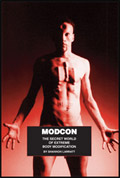Slashdot readers have probably just seen this story about a statement from EMI about CD copying. A customer send a message that said, “I just bought a CD from you, and it won't play in my CD player. What should I do?” The response included,
[Copy protection] means the end of free music, something that must cause you much grief... [What you are claiming] can, in our experience, only originate from the realm of fairytales... Copy protection is a reality, and within a matter of months more or less all audio media worldwide are copy protected. And this is a good thing for the music industry. In order to make this happen we will do anything within our power -- whether you like it or not.
Let me briefly explain how copy protection on CDs works (it's really lame). A CD has a “table of contents” that says what's on it. If that CD was created by a computer, there may be multiple tables if the CD has been updated (ie. a “multi-session” CD). As such, according to “official specs”, an audio player should always read the first table of contents, and a computer should always read the last one. So what they do is put a “valid” first table of contents in, and then a bunch of bogus ones. Audio players grab the valid one, and computers grab the bogus ones.
Boy, that'll be tough to crack. What, all of one line of code will have to be altered!?!? They can't seriously think this is going to work… At least Macrovision took a little effort. Anyway, consumers will rightly demand that the audio CDs can be played in the computer. The fact is that if you can play something, you can copy it. That will not change.



Post a Comment